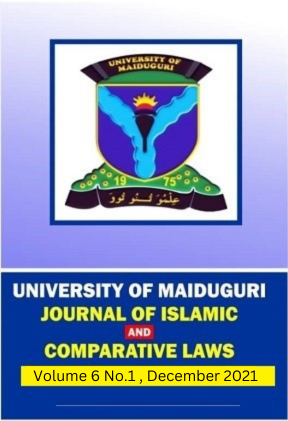EXPLORING SULH IN ISLAMIC CASES: TOWARDS ENHANCING ADMINISTRATION OF JUSTICE IN SHARIA COURTS IN NIGERIA
The origin of is as old as Islam itself, because it came
along with Islam. The treaty of Hudaybiyyah is the
classical example of the practice of sulh in Islam where it
was initiated between Prophet Muhammad (PBUH) and the
representatives of the Makkah oligarchy. Just like the
conventional ADR where the advantage outweighs the
disadvantage, so also sulh have far reaching advantage than
litigation. The concept enhances and restores cordiality,
mutuality and forbearance among the disputants and of
course it saves time and cost for parties and courts.
Considering this therefore, it is apposite that Sulh in
Islamic cases should be encouraged and employed with a
view to enhancing and speeding the administration of
justice in our Sharia courts. In using the doctrinal
methodology, the Qur’an and Hadith were consulted, the
secondary source was also consulted and other sources of
Islamic law. This article finds that the practice of Sulh is
facing some challenges because it is not encompassed in
any law, like the way the Sharia Penal Code law, Sharia
Court Law and Sharia Court (Civil Procedure) Rules were
legislated because those items fall within the legislative
competence of the State Houses of Assembly. This article
recommends among others, that the Sharia Alternative
Dispute Resolution Law and Rules based on Islamic law be
made by the States implementing Sharia to further
strengthen the practice of sulh in our Sharia Courts.
There are no reviews for this Journal.
About the Journal
About
Editorial Team
Curent issues
Archive
DOWNLOADABLES
Guide for contributors
Authors Response Form
Manuscript review Form
Make a Submission

